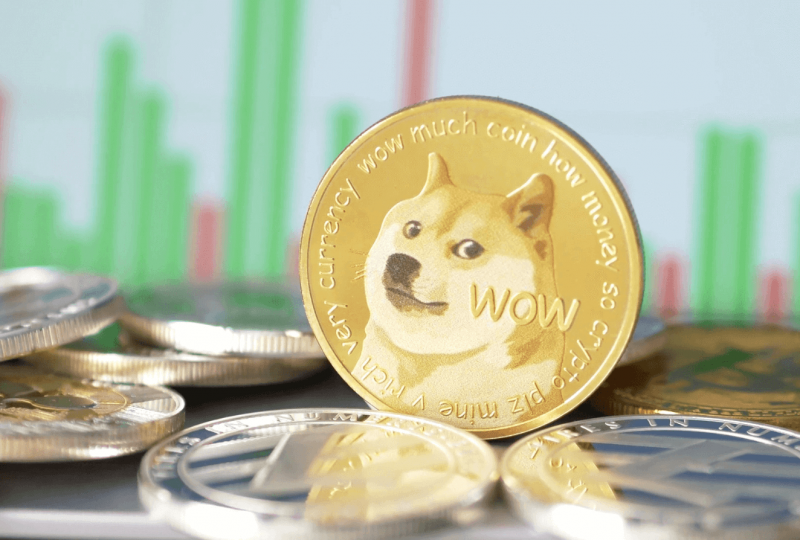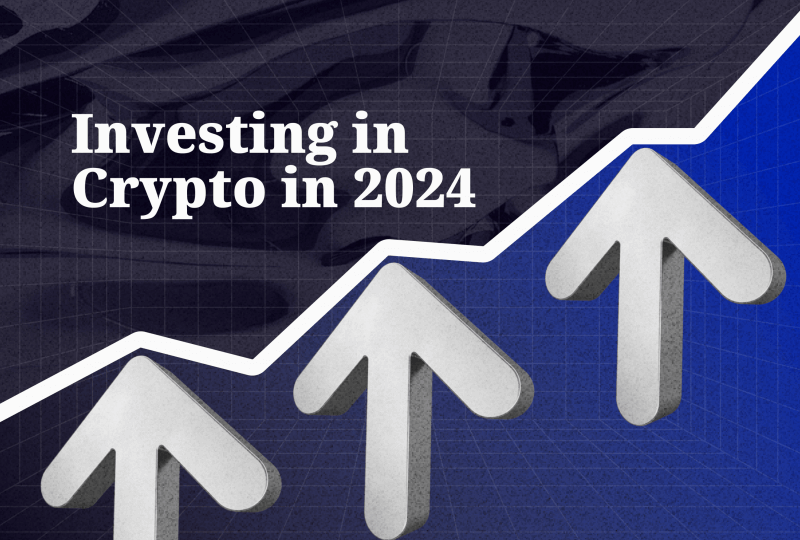How High Can Dogecoin and Shiba Inu Coin Go?
Oct 30, 2021

Dogecoin, a new cryptocurrency launched in 2013, was created as a joke mocking the Bitcoin speculative frenzy. The Shiba Inu coin, Dogecoin's canine mascot, was produced by an unknown developer in August, riffing on the previous hoax. The internet jokes grew extremely genuine sometime along the way.
The two "meme coins," as they're known, are now the ninth and tenth most valuable cryptocurrencies, with a combined market valuation of $79 billion. For the first time on Oct. 27, Shiba Inu momentarily outperformed the eight-year-old dogecoin in terms of value. The coin rose on reports that it might be listed on the Robinhood platform.
The crypto market is rife with hype. Meme coins, on the other hand, are one of the riskiest, most puzzling investments. While other cryptocurrencies, such as Bitcoin (a means of payment) and ether (a currency for the Ethereum blockchain that allows decentralized applications such as contracts), have a declared purpose, meme coins are explicitly a collective joke.
Experts claim that the coins are accruing value only due to speculative market demand, despite the fact that they have no core use. Meme coin prices are the latest to rise as speculation has driven up the price of numerous assets in the last year, including meme stocks, crypto, non-fungible tokens, and other collector items. If and when the markets tumble, many individual investors will be burned.
Dogecoin, Shiba Inu coin, and FOMO
The value of cryptocurrencies is soaring. Since the start of 2021, the price of bitcoin, the original cryptocurrency, has roughly doubled, while the price of ether has quintupled. Smaller coins, such as Dogecoin and Shiba Inu coin, have experienced even greater volatility.
Dogecoin is inexpensive, at $0.23 per coin, but the Shiba Inu coin is much cheaper: as of Oct. 28, $1 would get you roughly 14,000 coins. The quantity is virtually limitless: one quadrillion Shiba Inu coins (with 15 zeros). This allows retail investors to amass large amounts of coins at a low cost, as Shiba Inu's whitepaper — or "woof paper" (pdf) as its anonymous author Ryoshi refers to it — emphasizes. The Shiba Inu currency project's primary incentive may be its competition with Dogecoin.
Dogecoin was created as a mechanism to tip online producers, while Shiba Inu's developers are launching ShibaSwap, a "decentralized exchange" centered on the coin and other tokens. However, the purpose of both Shiba Inu coin and dogecoin is unknown. Shiba Inu, on the other hand, is clearly motivated by a desire to dominate the dog-themed coin industry through collective action.
Ryoshi explains, "We acquired the nickname Dogecoin Killer because the value of SHIB is primed and ready to overtake the value of Dogecoin." "Even if SHIB never reaches $0.01, SHIB will be valued proportionately more than the popular canine memecoin due to our publicity and utility."
The initiative has drawn investors in part because, as bitcoin, ether, and other well-known cryptocurrencies become more costly, cheaper coins provide a chance to make large profits quickly (and losses). However, the mindset of an asset bubble, not facts, is driving these returns. "People invest in Bitcoin because they hear about other people making a lot of money and they don't want to be left behind," Itay Goldstein, a finance and economics professor at the University of Pennsylvania's Wharton Business School, explained. The same FOMO is exploited by low-cost meme currencies.
Meme coins bolster detractors' claims that the cryptocurrency market is largely a vehicle for speculation with little real-world utility. "It's a terrible statement about how people value a coin without truly understanding what it does," says Eshwar Venugopal, a finance professor at the University of Central Florida. "I don't believe the ordinary bitcoin investor is concerned about what this project is accomplishing; rather, they are concerned with speculating."
Merav Ozair, a blockchain expert and fintech professor at Rutgers Business School, is concerned that this could have far-reaching implications for the entire crypto market. "I'm scared it'll go down, it'll blow up in people's faces who took the risk, and it'll tarnish everything that has to do with blockchain and cryptocurrency," she said. "No one is paying attention to the real-world applications."
Memes are reshaping finance
Internet memes can be any piece of popular culture found on the internet, though they are most commonly associated with viral jokes, photographs, or videos. While they have had a long history of impact in pop culture and politics, their influence in finance has only recently begun. Retail investors on Reddit and Discord's WallStreetBets forums teamed together in 2021 to pump up meme stocks like GameStop and AMC Entertainment, squeezing short-sellers they believed were undervaluing the companies. (As a result, one hedge fund, Melvin Capital, lost 53% of its investments in January 2021.)
Now, groups on Reddit, Twitter, and other social media platforms appear to be forming around meme coins in the same way, raising their value. The most important differential — and potential risk for investors — is regulation. Financial disclosures and quarterly statements are required for public firms. While GameStop's skyrocketing stock price demonstrates how internet discussion and collective action may push up stock prices (regardless of their underlying value), the company generates real revenue and assets. Meme coins are investment vehicles that do not have an actual business or product to back them up. Because there is no regulation in the United States, users have no idea who is in control of certain cryptocurrencies or how their basic finances work. Even simple compulsory financial disclosures, according to Venugopal, will result in a "sea change" in how customers evaluate cryptocurrency ventures. To put it another way, transparency has the potential to wipe away the riskiest assets.
According to Goldstein, the value of cryptocurrency is still a bit of a mystery. Experts are still unsure how cryptocurrencies should be valued, which is crucial information that could safeguard consumers from speculative bubbles. "We have frameworks to fall back on, so it's easier to analyze stocks," Goldstein said. "The issue with cryptocurrencies is that there is no way of knowing what the price should be." Almost anything may be justified in some way."




